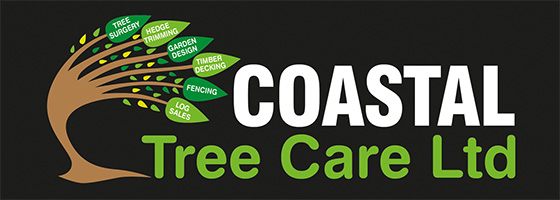Order your logs now – the case for wood fuel
The recent popularity of wood burning stoves amongst home-owners has sparked a huge increase in demand for wood fuel. The environmental and sustainability cases are really very persuasive, so order your logs now! Unlike the burning of fossil fuels, burning firewood releases no more greenhouse gases (including carbon dioxide) than allowing the wood to fall and simply rot on the forest floor. If we are responsible in the ways we grow, cut, and burn our firewood, wood burning can be a good choice for the environment. At Coastal Tree Care, we only produce logs from the arisings of our arboricultural work. We also plant thousands of replacement trees for our range of corporate and private clients.
Transportation is another important factor to consider. All of our logs are produced from our local tree care work in and around Weymouth, Portland and Dorchester. We are not contributing to excessive environmental emissions that would be caused if we were using hauliers to buy-in bulk loads of cord-wood to process and sell.
Hard or soft?
There is no doubt that the majority of people prefer to burn hardwood over softwoods. For the uninitiated, these terms can be confusing. Broad-leaf, or deciduous trees are generally termed hardwoods, and coniferous trees are softwoods. How do we explain the fact that balsa wood is apparently hardwood, and yew is soft wood? Balsa is a light, soft wood, whereas yew is incredibly heavy, but burns nicely when well-seasoned.
In truth, almost all timbers will make good firewood if they are seasoned properly. The potential issue with softwood is that it can contain high amounts of resin, and if logs are not sufficiently dry, this can increase the amount of smoke and gases released. Creosote (tar-like substances) can form when the gases released condense on a cold chimney flue. These deposits can build-up, which can result in chimney fires if not regularly cleaned out. Well-seasoned wood burns efficiently, creates a good ‘draw’ and heats the flue lining. This enables the gases to rise up and out of the chimney before they get a chance to condense.
Many arborists and foresters happily burn well-seasoned softwoods in preference to, or mixed with hardwoods. Softwoods generally burn hot and fast, with good flames, while most hardwoods burn more slowly, with a smaller flame. Kindling is almost exclusively made from softwood. It is required to burn easily, and give off lots of heat to start the fire quickly and efficiently.
Seasoning firewood
Wood burns most efficiently when it is dry, with freshly-cut wood containing around 35-50% water. Whilst this can be burnt in a hot enough fire, the process is frustratingly slow and produces a lot of smoke. A hot fire with minimal smoke is an efficient energy-converter with less pollution.
Seasoned logs should ideally be below 25% moisture content. If you knock two logs together the sound should be more like a ‘ring’ than a ‘thud’. They should feel lighter than they appear to be – if that makes sense. The end grain of dry logs will often contain cracks. Dry firewood will be darker than freshly-cut timber, which is often a pale cream or yellowish colour.
Logs will season more quickly if they are cross-cut and split soon after the tree is felled. You are looking to increase the rate of evaporation from the wood cells. The increased surface area will help the process. Firewood should be stacked outside in a bright, open place, and there is really no need to cover your stack. Rain runs off the surface of the wood without being properly absorbed. Many people like to have a log store in their gardens, with a sloping roof to shed the majority of rain. These stores are attractive features, as well as being practical. Stack your logs so the end grain faces the direction of the prevailing wind.
Softwood can season properly in six to eight months if cut in late winter, then split and stacked outside. Hardwood requires two summers and a winter to season properly. This is because it grows more slowly than softwood, making the fibres in the wood more dense. This density acts to hold on to the water in the wood, thus making it slower to evaporate. This additional time factor increases the cost of storage and accounts for the increased cost of hardwood over softwood.
Buying firewood
The market for seasoned firewood can be confusing. Suppliers use varying terms to describe the quantities of their product – and some marketing is misleading or untruthful. I have even seen softwood logs in net bags at a national retailer labelled as seasoned hardwood. The question we are asked most often relates to the actual quantity – either the size of the sacks we use, or the quantity of a bulk delivery. Many suppliers deliver logs in dumpy bags – the sort used by builders’ merchants to deliver sand or gravel. The capacity of most of these bags is around 0.7 cubic metres, and whilst they will take a tonne weight of sand, the equivalent weight of seasoned logs will only be between 250-300kg depending on wood type and moisture content. In fact, you want the wood to be as light as possible, so that it burns efficiently.
You will probably order from two or three different suppliers before you settle on one you trust. Try and understand exactly how much firewood your cash will buy you. Coastal Tree Care uses recycled polythene sacks for smaller orders, and can deliver larger quantities with our tipper truck. The load volume of the tipper bed is 2 cubic metres. You get approximately 1.7 cubic metres per load – or almost three dumpy bags, after you take the air gaps into account.
If you have room to stack wood and season it yourself, it makes sense to order your logs well in advance. We can deliver unseasoned logs at a discounted prices to customers in the Weymouth, Portland and Dorchester areas. Order your logs now so you can save money and ensure your winter supply when most stockists have sold out.
Order your logs now
Many of you will start to think of cosy winter nights in front of the fire or log burner, with good reason! Order your logs now to avoid disappointment later in the winter season. We can offer both seasoned and unseasoned logs, in a range of sizes to suit both large, open hearths and smaller log burners. Call Dale on 07530 686040, or order directly from the firewood page on our website here.

